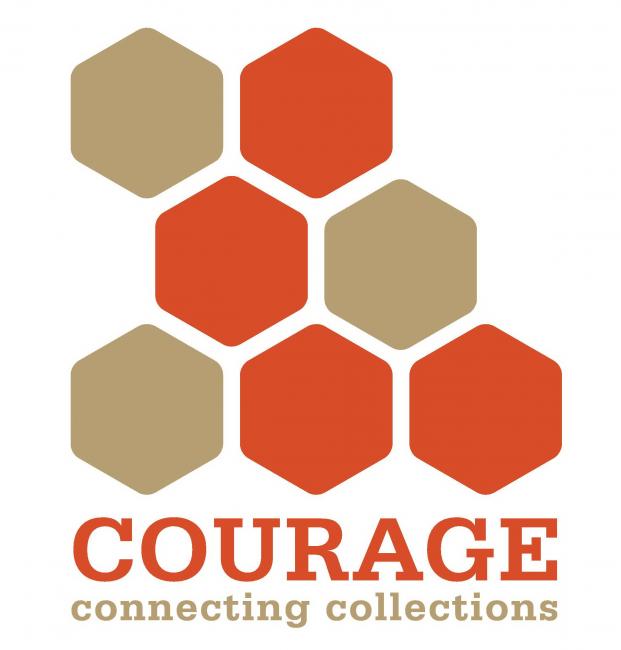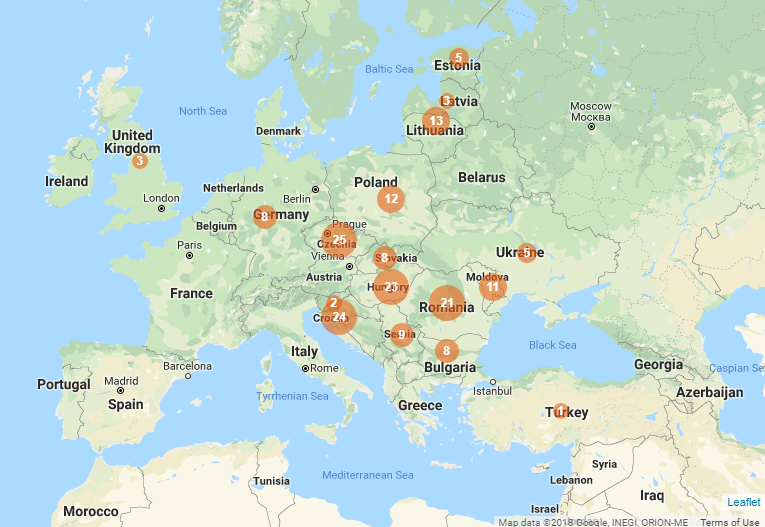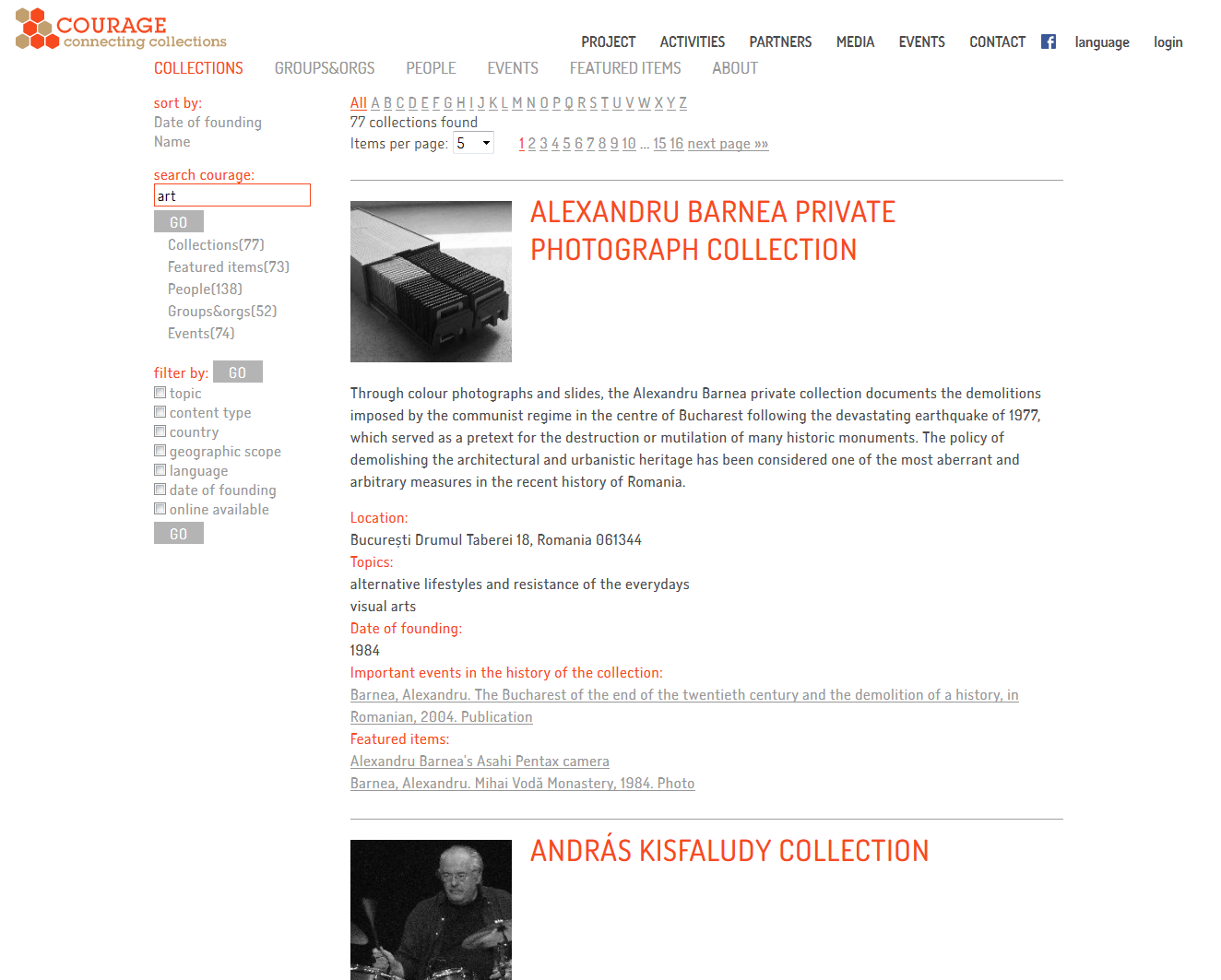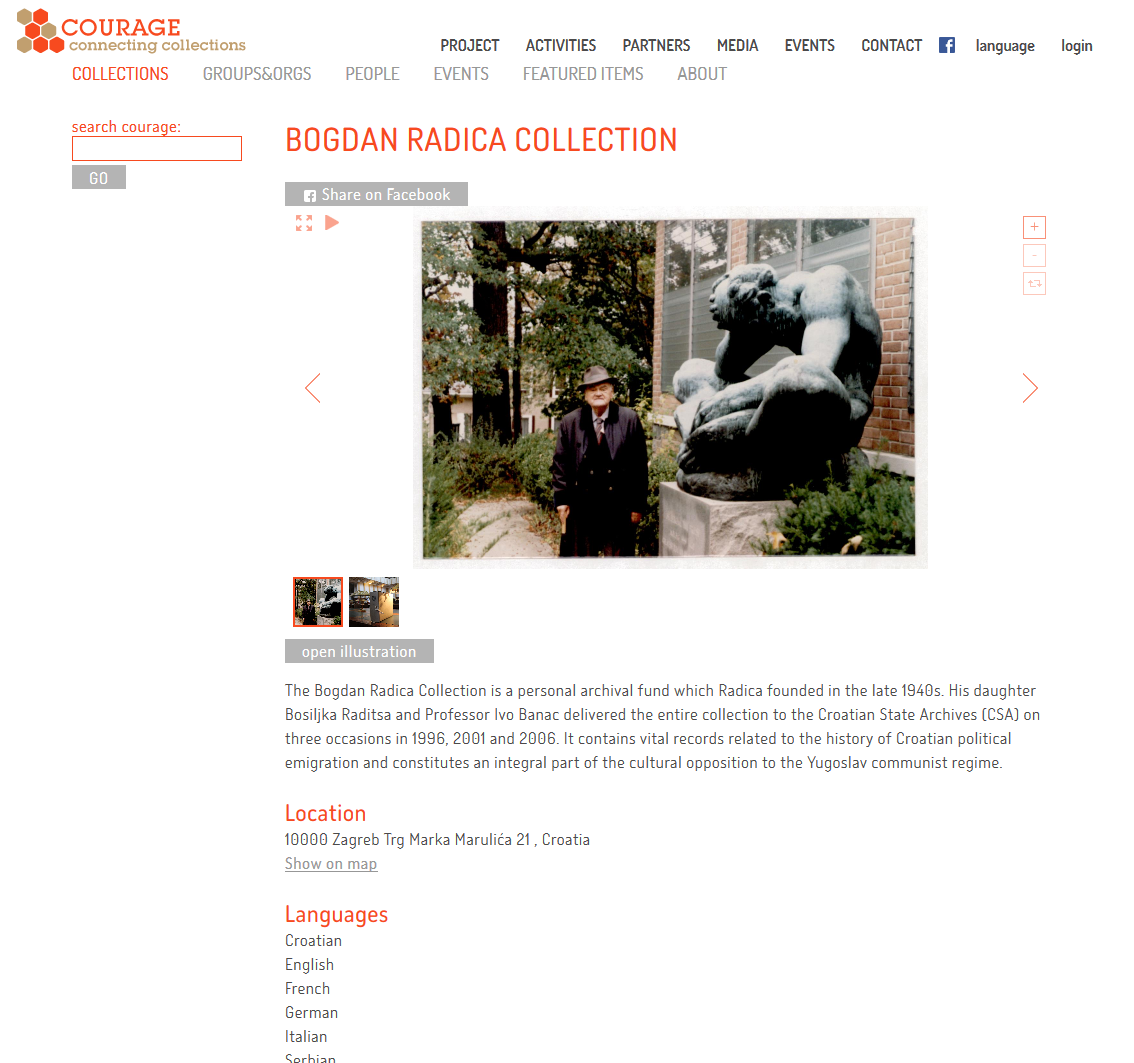
COURAGE
The COURAGE project is exploring the methods for cultural opposition in the socialist era (cc. 1950-1990). We are building a database of historic collections, persons, groups, events and sample collection items using a fully linked data solution with data stored in an RDF triple store. The registry will be used to create virtual and real exhibitions and learning material, and will also serve as a basis for further narratives and digital humanities (DH) research.
COURAGE addresses the role of the collections in defining what “cultural opposition” means in order to facilitate a better understanding of how dissent and criticism were possible in the former socialist regimes of Eastern Europe. The type of opposition we want to discover was largely evident in the culture and lifestyle under the socialist era, and include activities such as alternative music, alternative fine arts, folk dance clubs and religious movements. The COURAGE project [1] [L1] (within the EU H2020 framework) is creating a comprehensive online database (digital registry) of existing but scattered collections on the histories and forms of cultural opposition in the former socialist countries, thereby making them more accessible. The project will also analyse these collections in their broader social, political and cultural contexts. The general aim of this analysis is to allow for the expanded outreach and increased impact of the collections by assessing the historical origins and legacies of various forms of cultural opposition. Our research team aims to explore the genesis and trajectories of private and public collections on cultural opposition movements, the political and social roles and uses of the collections before 1989 and since, the role of exiles in supporting these collections, etc.
The project team contains institutes or faculties of history or sociology from Bulgaria, Croatia, Czech Republic, Germany, Hungary, Ireland, Lithuania, Poland, Romania, Slovakia and the United Kingdom. The role of IT support is assigned to MTA SZTAKI.

MTA SZTAKI has built a complex IT environment supporting this Digital Humanities project, which includes RDF and file storage, a knowledge management platform, task management with Redmine, portals for all participating countries, support for virtual exhibition and online learning material, and various export facilities. We provide HTML and MS Word export for knowledge items and metatdata export in XML, e.g. for DataCite DOI registration.
Based on the requirements set by historians and sociologists, MTA SZTAKI installed and customised a linked data platform, where data for all former socialist countries can be entered by researchers involved in the project. The linked data approach was a natural choice given the importance of capturing the connections between all the researched players, events and collections. The linked data approach is not yet widely known and appreciated in the fields of arts and social science, but our researchers quickly realised its advantages and learned about its different way of data representation. The editor team benefits from the easy traversal and grouping of linked entities and the multilingual text handling, while the administrators can very easily extend or change the data model on-the-fly. Editors use the Vitro platform with Jena triple store for editing, which is connected to a set of WordPress portals for public presentation.
Among the many IT challenges, first we had to solve the representation of timed properties, for example when a collection was owned by a person and then donated to a museum. Secondly, we had to implement a kind of simplified authorisation for triple editing (the option “Everything is open” was not acceptable for the community). Thirdly, a quality assurance workflow was also developed in-house. Entities in the registry go through a seven-step workflow containing local and central quality checks and English proofreading. Our Redmine server is integrated into the workflow and helps to track quality control issues and their reponsibles.

The result is what we can call a knowledge graph connecting collections, events and participants of cultural opposition. Part of this graph is already published and browseable on the project portal under the registry link. The schema of the registry is called the COURAGE Ontology, and it is made available as an OWL file. In the future, we aim to map our ontology to various widely used metadata formats. We hope that by the end of the project we can build an almost complete encyclopaedia of cultural opposition in former socialist countries in the form of a knowledge graph.

COURAGE explores
1. the genesis and trajectories of private and public collections on cultural opposition movements in former socialist countries in Europe, with particular consideration given to how their transition from opposition to mainstream and private to public occurred;
2. the political and social roles and uses of the collections before 1989 and since, and the efforts that have been made by national governments to preserve, maintain or add to them;
3. the role of exiles in supporting, preserving and disseminating these collections beyond the Iron Curtain and back home, and the uses of collections that were created by the exile community;
4. material culture represented by these documents, objects and audio-visual footage: what was and was not regarded as worthy of collection and preservation, what objects were deemed important as potential historical sources or relics and what objects were omitted or discarded?;
5. the organization and the order of the collections as they are represented, particularly in the dataset and reference systems: how is the material collected?;
6. the social background and life trajectories of the working staff of the collections;
7. the sociology of institutions, stakeholders, their legal frameworks, financial backgrounds, ownership and management, the social and cultural composition of their audiences and the uses to which the collections are put in historical studies and culture;
8. the networking and cooperative capacity of different types of collections: what are the existing and possible forms of cooperation and public presentation, and how can we contribute to the development of strategies with which to strengthen cooperation among the collections?
MTA BTK - Research Centre for the Humanities, Hungarian Academy of Sciences
IFIS PAN - Institute of Philosophy and Sociology, Polish Academy of Sciences
TCD - Trinity College Dublin
IOS - Institute for East and Southeast European Studies, University of Regensburg
MTA TK - Centre for Social Sciences, Hungarian Academy of Sciences
LII - Lithuanian Institute of History
CUNI - Charles University, Prague
UB - University of Bucharest
HIP - Croatian Institute of History
Comenius University, Bratislava
The University of Oxford
MTA SZTAKI - Institute for Computer Science and Control